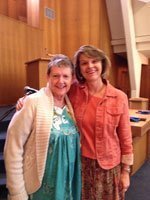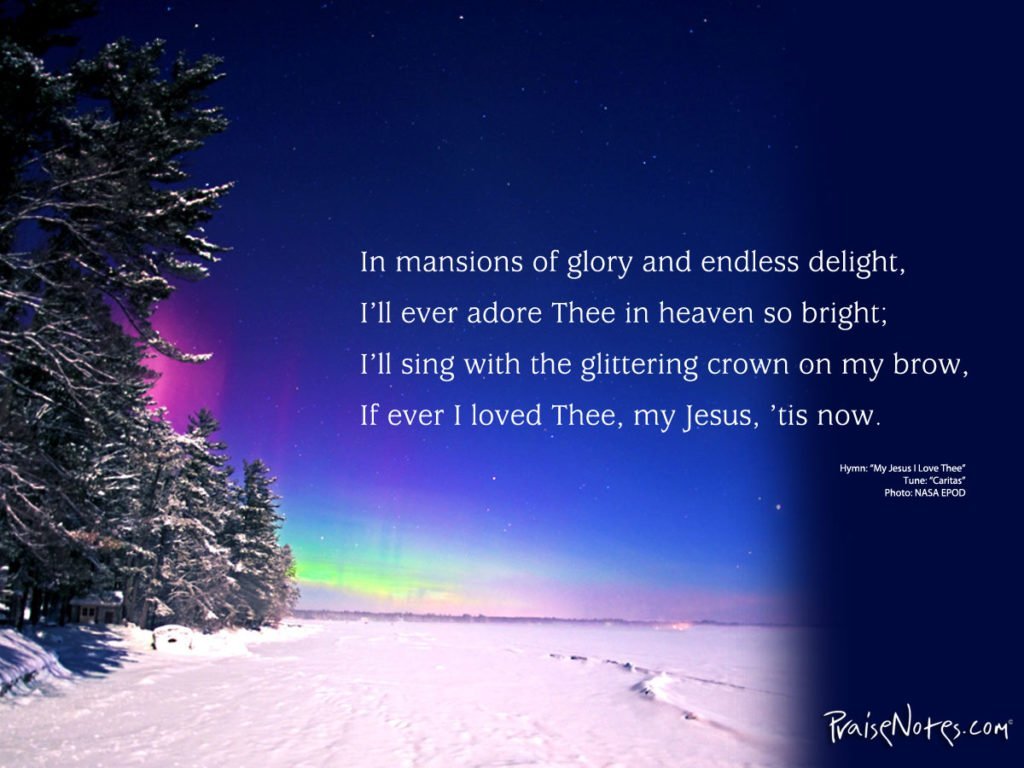 At first glance, some traditions seem small and insignificant and yet they are filled with great importance and are worth passing on from generation to generation. Christians have always observed the AMEN tradition after prayer. I grew up in a home where we said AMEN after each prayer of blessing for our food. Although most Christians remember the AMEN tradition in this way, there is another AMEN tradition that has also remained important to many Christians: singing AMEN at a hymn’s conclusion.
At first glance, some traditions seem small and insignificant and yet they are filled with great importance and are worth passing on from generation to generation. Christians have always observed the AMEN tradition after prayer. I grew up in a home where we said AMEN after each prayer of blessing for our food. Although most Christians remember the AMEN tradition in this way, there is another AMEN tradition that has also remained important to many Christians: singing AMEN at a hymn’s conclusion.
My Jesus I Love Thee

Hymns are like any other song in that, especially songs from one’s youth, they can become part of the fabric of memory. An event, a person, a place, even the smell of cookies baking or the sound of a father’s voice on a recording can trigger the memory and you find yourself humming the tune, singing the words — even to a hymn that you had not heard for many years, perhaps even decades. Hymns, however, are not just like any song. They carry personal meaning and attachments, of course, but the overall purpose of hymns are to point us to our Savior, the King of Kings. “My Jesus I Love Thee” is one of these kinds of songs for me. I grew up in church singing many hymns, but this song has a special place in my heart. I have always loved singing it. The simple words and the beautiful melody have combined to be an anthem–a declaration–of my love for Jesus Christ. I hope this song (and the picture above) inspire you to declare, “If ever I love Thee, my Jesus, ’tis now.”
Please download the free leadsheet here
Amazing Grace
Amazing Grace (click here to download your free copy of our beginner piano student arrangement) is a Christian hymn written by English poet and clergyman John Newton (1725-1807). Published in 1779, it is one of the most recognizable songs in the English-speaking world.
Newton wrote the words from personal experience. He was pressed into the Royal Navy and became a sailor, eventually participating in the slave trade. One night a terrible storm battered his vessel so severely that he became frightened enough to call out to God for mercy, a moment that marked the beginning of his spiritual conversion. His career in slave trading lasted a few years more until he quit going to sea altogether and began studying theology.
Ordained in the Church of England in 1764, Newton became curate of Olney, Buckinghamshire, where he began to write hymns with poet William Cowper. Amazing Grace was written to illustrate a sermon on New Year’s Day of 1773. It has been associated with more than 20 melodies, but in 1835 it was joined to a tune named New Britain to which it is most frequently sung today.
Cecil Francis Alexander
by Annette Christensen
The Apostles’ Creed (click here to hear our original composition of “The Apostle’s Creed”) is a very important, very old document in the Christian church. It states, in a nutshell, the basic truths of the Christian church. But those truths are very big and important, and sometimes hard for children to understand. Cecil Francis Alexander knew this, so she wrote a whole series of hymns for children, to help them understand the doctrine in the Apostles’ Creed. Some of those hymns are still loved today: Once in Royal David’s City was written to explain “conceived by the Holy Spirit, born of the Virgin Mary”; There is a Green Hill Far Away explained “suffered under Pontius Pilate, was crucified, dead, and buried”; and the hymn we are talking about today, All Things Bright and Beautiful, was written to explain (God the Father), “maker of heaven and earth”.
Cecil Francis Humphrey Alexander was a gifted poet and hymn writer. She was born in Ireland in 1818, and started writing poems when she was only nine. Some of her hymns were already included in the Church of Ireland hymn book in the 1840’s. She wrote primarily for children, and her poetry was mainly to teach about God and the Bible. Always concerned for children, with the money from her first publications she established the Derry and Raphoe Diocesan Institution for the Deaf and Dumb, founded in 1846 in Strabane. In 1848 she published Hymns for Little Children and profits from this book were also donated to the school. The Derry Home for Fallen Women, and developing a district nurses service, were also projects that Cecil helped.
